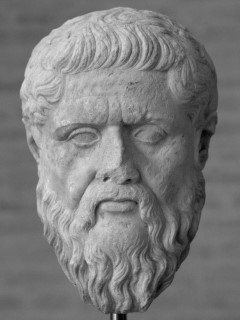
Publication details
Publisher: Palgrave Macmillan
Place: Basingstoke
Year: 2009
Pages: 181-199
ISBN (Hardback): 9781349355419
Full citation:
, "A Whiteheadian chaosmos?", in: Deleuze, Whitehead, Bergson, Basingstoke, Palgrave Macmillan, 2009


A Whiteheadian chaosmos?
pp. 181-199
in: Keith Robinson (ed), Deleuze, Whitehead, Bergson, Basingstoke, Palgrave Macmillan, 2009Abstract
The main purpose of this chapter is to establish a fundamental difference between the speculative systems of Deleuze and Whitehead by way of the distinction between a cosmology and a chaosmology. At its most simplistic, the difference in play is that between a cosmos in which order is imposed on a primordial chaos "from outside", or transcendently (as when Form is imposed on matter by the Platonic demiurge, or harmony established a priori by the Leibnizean deity), and a chaosmos in which order is generated "from within", by a wholly immanent process of self-organization. In these very general terms, perhaps the closest approximation to a chaosmology among Whiteheadian thinkers is to be found in Donald Sherburne's vision of "a Whitehead decentered … a Whitehead without God ... a neo-Whiteheadian naturalism". From this perspective, as from Deleuze's, "there is no one overarching center of value, meaning and order"; rather, "patterns of meaning and order emerge gradually, fitfully, and unevenly from [a] churning multiplicity of value centers' (Sherburne, 1986, pp. 83, 92). Thus — or so it would seem — the term "chaosmology" is simply a fancy neologism for speculative naturalism, for a cosmological system which lacks a God.
Cited authors
Publication details
Publisher: Palgrave Macmillan
Place: Basingstoke
Year: 2009
Pages: 181-199
ISBN (Hardback): 9781349355419
Full citation:
, "A Whiteheadian chaosmos?", in: Deleuze, Whitehead, Bergson, Basingstoke, Palgrave Macmillan, 2009



